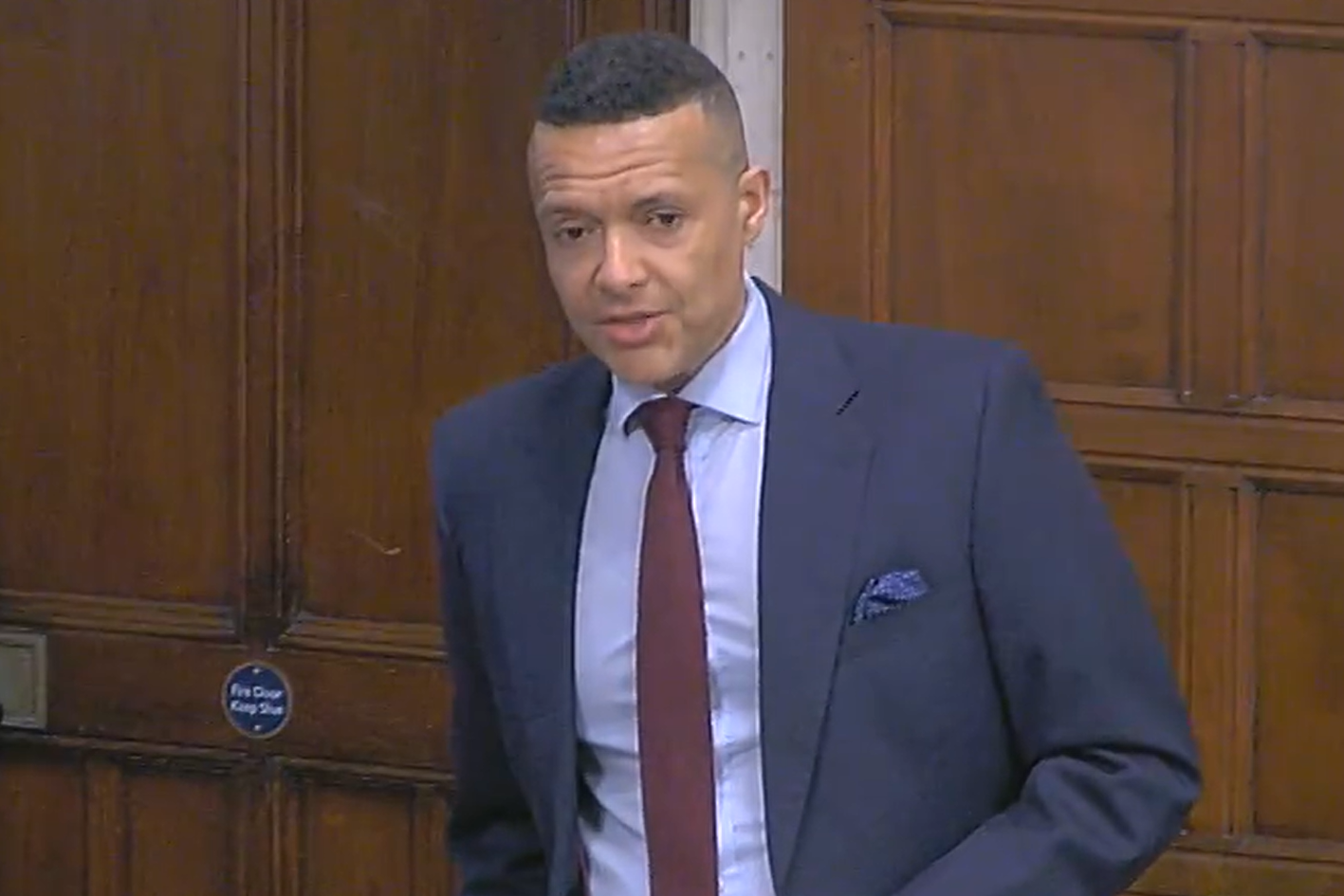UK must pay reparation to Caribbean countries for ‘hideous’ slavery, say MPs
Labour MP Clive Lewis likened the UK’s relationship with its former Caribbean colonies to an abusive one.

The UK must pay reparation to Caribbean countries to make up for Britain’s role in slavery, ministers have heard.
Labour MP Clive Lewis called for Rishi Sunak’s Government to enter “meaningful negotiations” with the UK’s former Caribbean colonies and pay them reparation to mitigate the impact of slavery.
The Norwich South MP said ministers should follow the example of a wealthy aristocratic family, the Trevelyans, who recently apologised for their role in the slave trade in Grenada and set up an educational fund on the island nation.
The issue of reparatory justice must be confronted now
Mr Lewis, who said he has family links to Grenada, told MPs: “I would contend that we cannot debate our Government’s role in promoting financial security and reducing inequality in the Caribbean without discussing the elephant in the room – namely, the preceding 400 years of exploitative colonial history and the urgent need for some form of reparatory justice.”
He thanked the Trevelyan family, watching the Westminster Hall debate from the gallery, for doing “what no British government have ever done”.
He added: “They apologised for their ancestors’ part in the exploitation of the 1,000 slaves they owned on six plantations. They acknowledged the financial and cultural advantage that had generated for them, and urged the British Government, as I do today, to enter meaningful negotiations with the governments of the Caribbean in order to make appropriate reparations.
“The Trevelyan family did not leave it there. They set up an educational fund worth £100,000, and in so doing opened the door of the debate just a little wider. Thank you very much for all that you have done.”
Mr Lewis later described the Commonwealth as a “relationship between Britain and her former colonies”, and Caribbean countries as “a partner who has endured 400 years of the most hideous abuse”.
He went on: “We as a country and as a Parliament have to remember that, until we acknowledge the past, play our part in resolving matters, and help to build a better future, we will never be able to heal and move forward, and a significant number of people will never truly feel a part of this country. That cannot be allowed to happen.
“We should live up to our words. We often talk in this place about collectively wanting to take our country forward into a bright future. The issue of reparatory justice must be confronted now.
“If this Government do not do it, the next government, whoever they may be, will find the arguments growing stronger by the year, by the day, by the week.”
Labour former minister Dawn Butler also supported calls for reparation, telling MPs: “Reparations are about making amends for centuries of violence and discrimination against those countries.
“It is interesting that people say ‘Let’s forget what happened’, when those countries are still in debt, their jewels and artefacts are in museums in this country, and we refuse to give them back. A lot of reparation is needed, whether it be economic reparations or an acknowledgement of what happened.”
We believe that the most effective way for the UK to respond to the cruelty of the past is to ensure that current and future generations do not forget what happened, that we address racism, and that we continue to work together to tackle today’s challenges
Conservative MP Daniel Kawczynski said he and Mr Lewis “might not entirely agree on the matter”, and claimed that giving Caribbean countries “tariff-free” access to the UK is more important than reparation.
But he added: “I would say to him that I have campaigned for many years for compensation for Poland from Germany, because 98% of the city of my birth, Warsaw, was destroyed in 1944.
“The Germans still refuse to pay that compensation, so I entirely understand his motives and strength of feeling.”
Foreign Office minister David Rutley did not answer the calls for reparation, instead telling MPs: “We believe that the most effective way for the UK to respond to the cruelty of the past is to ensure that current and future generations do not forget what happened, that we address racism, and that we continue to work together to tackle today’s challenges, such as climate change, through the initiatives that I have set out.
“Those need to be hard-hitting initiatives that will make a difference in people’s lives and help Caribbean nations move forward.”
Bookmark popover
Removed from bookmarks